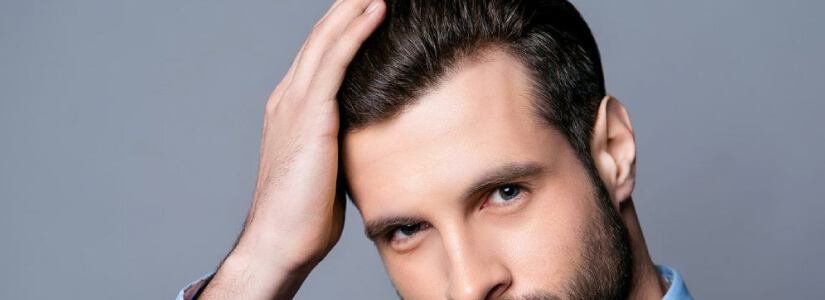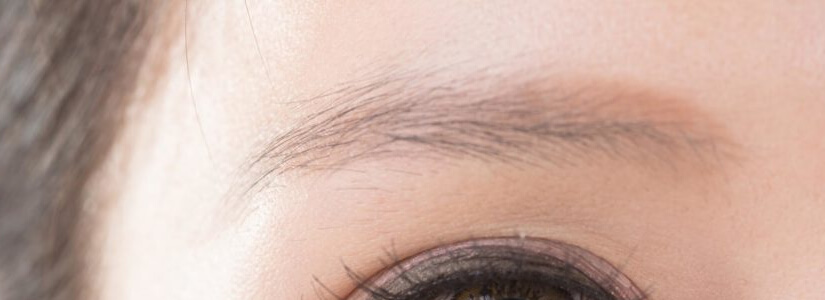Bad Choices that are thinning your hair
October 18, 2018

Hair loss is a mutual concern of both, men and women, whereas the baldness has been specifically associated with men only. The reason is that the most women do not lose complete hair and go bald like men, but they encounter uniform thinning of hair from all over the scalp.
It is normal for an individual to lose up to 100 strands a day. However, if the number increases, there may be a reason to worry about hair loss. Men who lose extensive hair in their early 20’s usually have Alopecia areata, which is an autoimmune disorder. The individuals with this hair loss condition lose a huge amount of strands in the form of patches. Whereas, this type of hair loss is not a permanent one and baldness can be avoided if it is treated in the earlier stages.
The indications of male pattern baldness and hair conditions in men may include:
Moments of concern about hair loss
Immediately see a doctor if this happens to you:
In spite of the fact that cures promising to re-establish hair to going bald heads have been around since old ages, most people with diminishing hair can do little to switch the procedure. For restorative purposes, or after hair loss from surgical or tranquilize treatments, numerous individuals swing to wigs, hairpieces, and hair weaving. A few people motivate tattoos to reproduce lost eyebrows and eyelashes. Certain procedures may moderate male pattern baldness, and elective treatments may reinforce the well-being of outstanding hair, yet no treatment is probably going to supplant a full head of hair.
Here is all the type of invasive and non-invasive treatment option that may help you to restore up to a desired amount of hairs.
The non-surgical treatments are non-invasive, easy to perform and are quite effective for selective hair concerns.
PRP (Platelet Rich Plasma) is a sample taken from your own blood. The prp has the most amount of growth factors as compared to whole other blood of the body. It is injected directly into scalp to enhance the collagen formation.
The procedure starts with a clinician taking out a sample of blood from your body. The obtained blood is then be injected into a specially designed apparatus. The apparatus separates out the prp from the blood sample. The newly obtained prp is then injected into the affected parts of the scalp resulting in a better growth of collagen and hair follicles.
In some cases, a couple of sittings are enough to produce results but in most cases, it requires 5-6 treatments for maximum output.
Although the procedure does not give dramatic outcomes it slowly enhance hair follicles products and in many cases generate new strands. The final results may appear after 2-3 months
Mesotherapy is a non-surgical male pattern baldness treatment elective that enables most people to stop hair fall and furthermore regrow any lost hair. Hair loss is a very basic corrective issue for many people. Some lose hairs because of maturing while others have it keep running in the family (androgenic alopecia) but then another gathering of individuals sheds hair because of some therapeutic condition or unhealthy way of life.
It includes injection of a specialized medication into the skin. It is a non-surgical treatment based on the series of superficial injections.
A normal individual need 4-5 session for getting the complete and nice looking results.
For individuals who have already lost a major amount of hair specifically in a male pattern baldness, are ideal to undergo the surgical hair restoration techniques.
Two type of most commonly used surgical hair restoration methods include:
Follicular Unit Transplant, also known as strip method transplant, is the traditional hair restoration technique which involves cutting a hair-bearing strip of skin from the baldness resistant areas of the scalp – the back or sides of the head. The strip is then dissected under a powerful microscope to obtain hair follicles of the desired size. The grafts thus obtained are then transplanted on the bald or thinning areas of the scalp.
Anybody bothered by hair thinning or baldness can benefit from FUE. However, individuals who are seeking a minimally invasive technique or those who wish to have minimal downtime and speedy recovery are specifically considered ideal for Follicular Unit Extraction.
The results produced by surgical hair restoration procedures are effective and long-lasting. The restored hair is extracted from the areas which are baldness resistant, thus making the new hair completely resistant to baldness. Usually, the restored hairs stay there for the lifetime.
To give you the best advice on your hair loss condition, the hair transplant clinic Dubai has introduced a free consultation in Dubai and Abu Dhabi. If you are a sufferer and seeking for the best suitable remedy for your condition, feel free to book a free consultation and avail our limited services by just filling an online form or by contacting us on the given numbers.
Dr. Cagatay Sezgin is a celebrity hair transplant surgeon with over 20 years of experience in hair transplantation and restoration. He is the First Turkish Board Surgeon to become a member of the International Society of Hair Restoration Surgery (ISHRS) and the Asian Association of Hair Transplant Surgeons (AAHRS). Moreover, he has the honor of becoming the first hair transplant surgeon in the world to perform hair, eyebrow, and beard transplantation all in one case and that too in a single session.

October 18, 2018

October 10, 2018

October 23, 2018